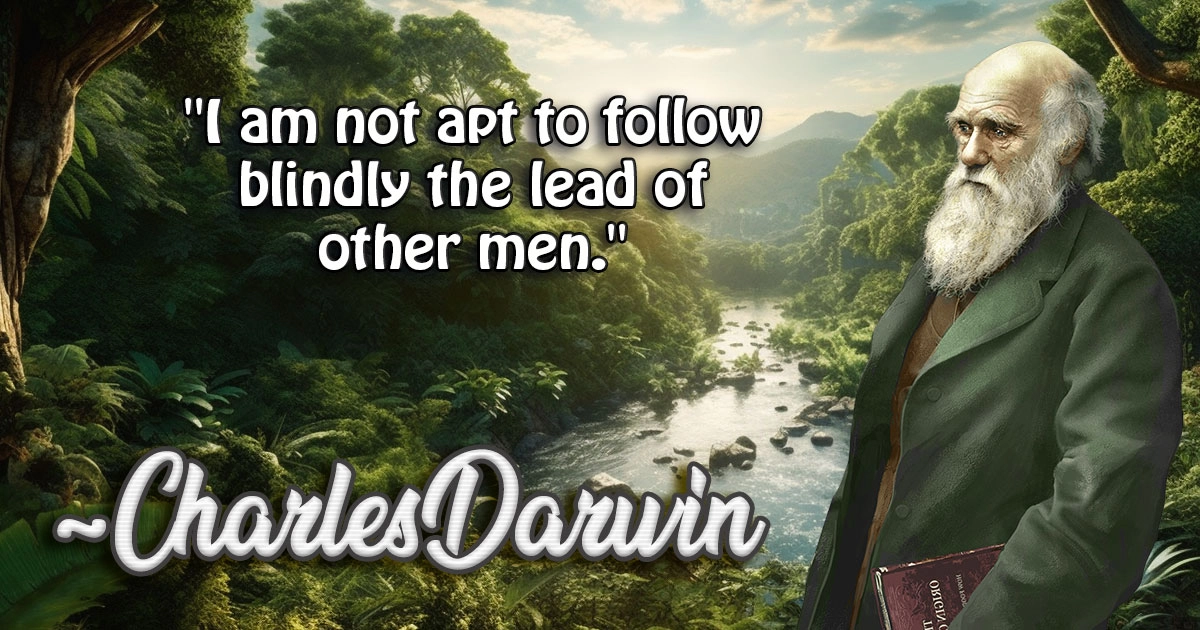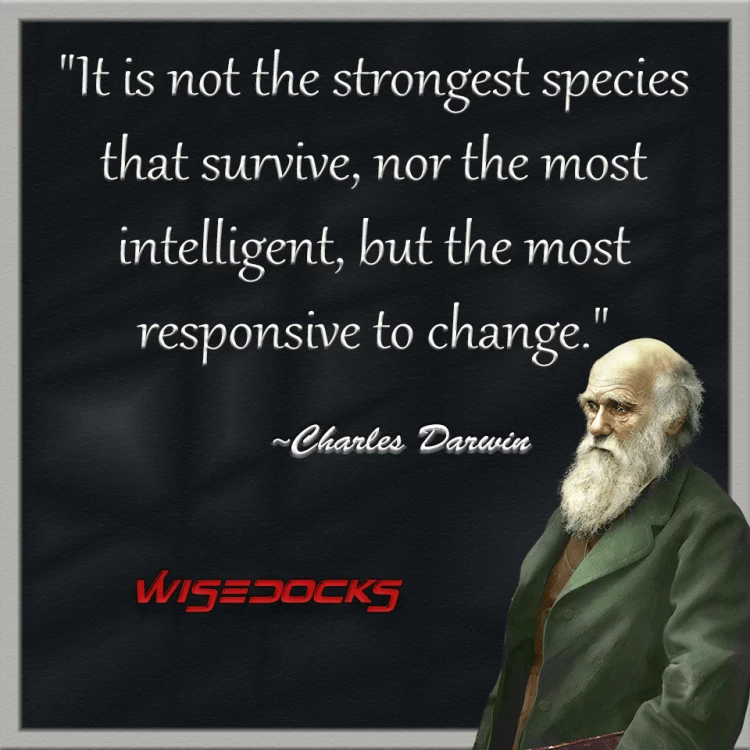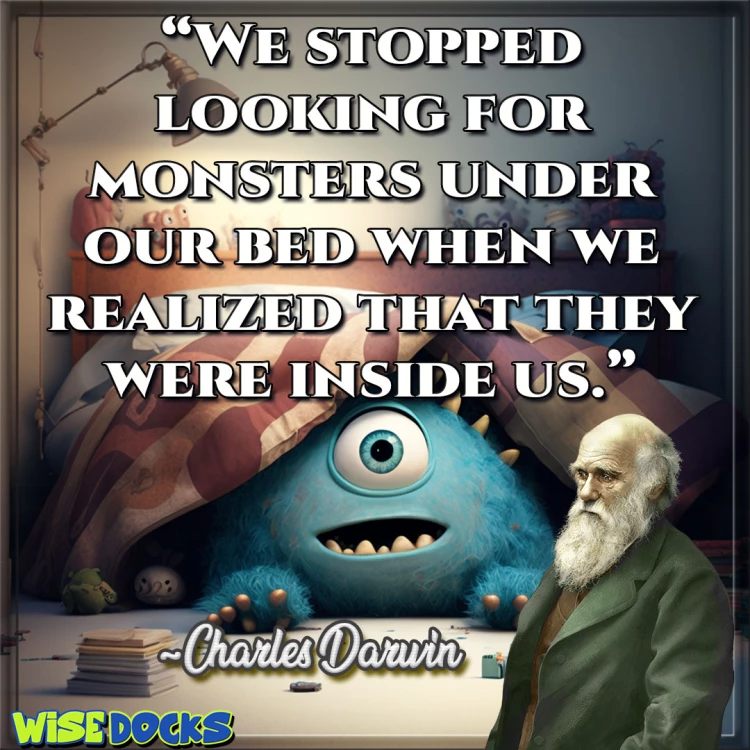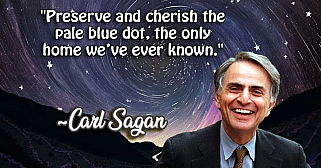Charles Darwin: The Man Who Changed the World

Charles Darwin
Early Life and Education
Charles Robert Darwin was born on February 12, 1809, in Shrewsbury, England, into a well-to-do family. His father, Robert Darwin, was a wealthy physician, and his mother, Susannah, was the daughter of the famous pottery manufacturer, Josiah Wedgwood. Darwin showed an early interest in nature, often collecting beetles and exploring the countryside.
At the age of eight, Darwin lost his mother, which had a profound effect on him. He was sent to the Shrewsbury School, where he developed a love for natural history. Despite his father's wishes for him to become a doctor, Darwin's fascination with the natural world led him down a different path. In 1825, he began his studies at the University of Edinburgh Medical School but found the lectures dull and surgery distressing. Instead, he spent more time studying marine invertebrates and geology.
The Voyage of the Beagle
Darwin's life took a significant turn when he joined the HMS Beagle as a naturalist on its second voyage, which lasted from 1831 to 1836. This journey would become one of the most important scientific expeditions in history. The Beagle's mission was to chart the coastlines of South America, but for Darwin, it was an opportunity to explore diverse ecosystems and collect an enormous variety of specimens.
During his time in the Galápagos Islands, Darwin observed unique species of finches, tortoises, and other animals. He noted that the finches had different beak shapes depending on their diet and habitat, leading him to consider the possibility of species adapting to their environments. These observations were crucial in forming his ideas about natural selection and evolution.
Formulating the Theory of Evolution
After returning to England, Darwin spent years meticulously studying his collections and reflecting on his findings. He corresponded with other scientists, such as the geologist Charles Lyell and the botanist Joseph Dalton Hooker, who supported his work. Darwin's ideas began to coalesce into a theory that would challenge the conventional views of the time.
In 1859, after more than two decades of research and contemplation, Darwin published "On the Origin of Species." This groundbreaking work proposed that species evolve over time through a process of natural selection, where individuals with advantageous traits are more likely to survive and reproduce. The book was met with both acclaim and controversy, as it contradicted the prevailing belief in the immutability of species and divine creation.
Major Works and Contributions
Apart from "On the Origin of Species," Darwin wrote several other influential books that expanded on his theories and observations. Some of his notable works include:
-
"The Descent of Man" (1871): In this book, Darwin applied his theory of evolution to human beings, arguing that humans share a common ancestor with other primates. He also discussed the role of sexual selection in shaping human traits and behaviors.
-
"The Expression of the Emotions in Man and Animals" (1872): Darwin explored the biological basis of emotions and facial expressions, suggesting that they have evolved as a means of communication.
-
"The Variation of Animals and Plants under Domestication" (1868): This two-volume work examined how domesticated species vary from their wild counterparts and the role of artificial selection in shaping these changes.
Personal Life and Legacy
Despite his groundbreaking work, Darwin led a relatively quiet and private life. In 1839, he married his cousin, Emma Wedgwood, and they had ten children, though several died in infancy. Darwin was deeply devoted to his family and often involved his children in his experiments.
Darwin's health was a constant concern throughout his life. He suffered from various ailments, including chronic stomach problems and bouts of depression. Despite these challenges, he remained dedicated to his scientific pursuits until his death on April 19, 1882.
Impact on Science and Society
Darwin's theory of evolution had a profound impact on both science and society. It provided a unifying framework for understanding the diversity of life on Earth and laid the foundation for modern biology. The concept of natural selection has been applied to various fields, from genetics to ecology, and continues to be a cornerstone of evolutionary biology.
Darwin's ideas also sparked intense debates and controversies, particularly regarding their implications for religion and human nature. While some religious groups rejected his theory as incompatible with their beliefs, others sought to reconcile it with their faith. Over time, the overwhelming evidence in support of evolution has led to its widespread acceptance in the scientific community and beyond.
We Stopped Looking For Monsters Under Our Bed
While the quote "We stopped looking for monsters under our bed when we realized that they were inside us" is often misattributed to Charles Darwin, there is no historical evidence that he actually said or wrote these words. Despite this, the quote resonates deeply with many, capturing the essence of introspection and the human condition. Therefore, I've decided to keep it attributed to Darwin on this site, not to mislead, but to highlight the powerful message it conveys about understanding our inner fears and complexities.
Famous Quotes
Charles Darwin's writings are filled with insightful observations and thought-provoking reflections. Some of his most famous quotes include:
-
"It is not the strongest of the species that survive, nor the most intelligent, but the one most responsive to change."
-
"A man who dares to waste one hour of time has not discovered the value of life."
-
"I am not apt to follow blindly the lead of other men."
-
"The love for all living creatures is the most noble attribute of man."
-
"In the long history of humankind (and animal kind, too) those who learned to collaborate and improvise most effectively have prevailed."
The Enduring Legacy of Darwin
Today, Charles Darwin is celebrated as one of the most influential scientists in history. His theory of evolution by natural selection remains a fundamental concept in biology and has shaped our understanding of life on Earth. Darwin's work continues to inspire researchers, educators, and enthusiasts, highlighting the importance of curiosity, observation, and critical thinking in the pursuit of knowledge.
Darwin's legacy extends beyond the scientific realm. His ideas have influenced philosophy, literature, and even social and political thought. The principles of variation, adaptation, and survival have been applied to various disciplines, demonstrating the far-reaching impact of his work.
Charles Darwin's journey from a curious young boy to a pioneering scientist is a testament to the power of observation and inquiry. His contributions to our understanding of the natural world have left an indelible mark on science and society. As we continue to explore the mysteries of life and evolution, Darwin's legacy serves as a reminder of the importance of embracing new ideas and challenging established beliefs in the quest for knowledge.





